
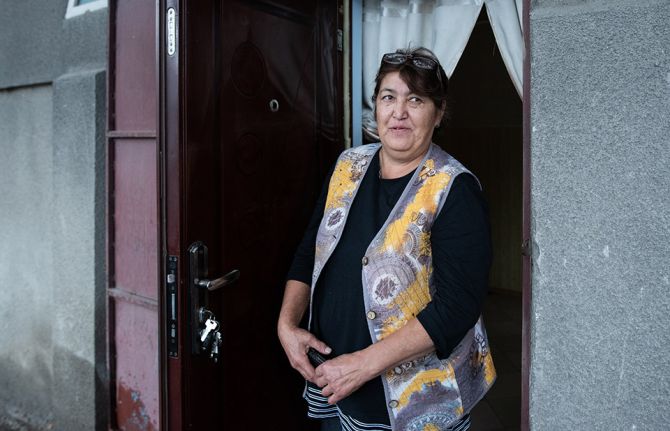
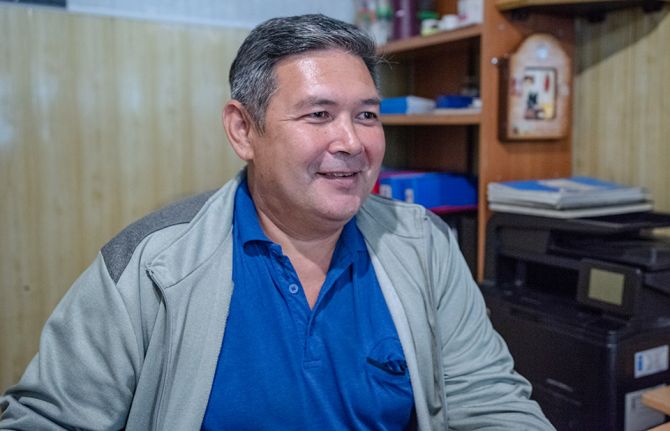
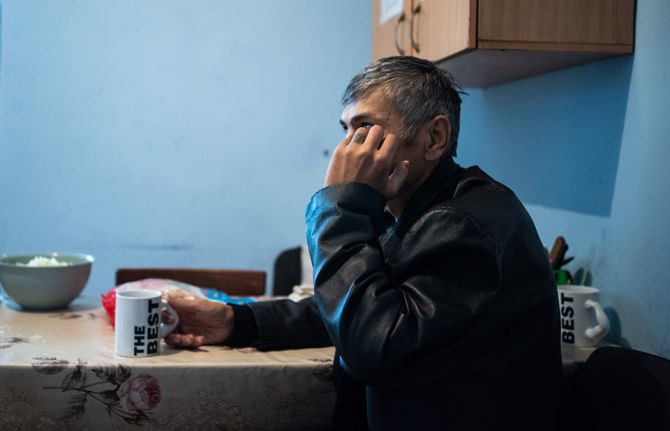
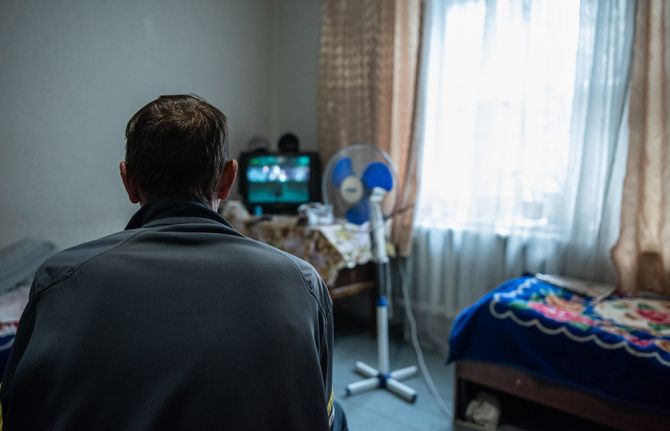
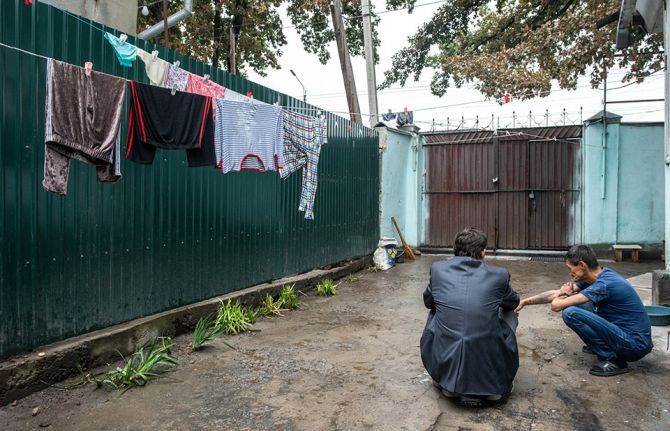
Feature Story
Shelter for key populations in Kyrgyzstan
15 September 2020
15 September 2020 15 September 2020Ishenim Nuru, which means “Ray of faith” in Kyrgyz, is a community organization that has been operating in the Chui region of Kyrgyzstan for many years. It started as a group of people living with HIV, their relatives and volunteers and then established itself as a nongovernmental organization that continues to work to fulfil its mission of improving the quality of life of people living with HIV.
Today, Ishenim Nuru provides the only shelter in the area for people in key populations. “With the COVID-19 epidemic, the situation has worsened for many people, but it has become extremely difficult for people released from prison who are living with HIV, people with tuberculosis and representatives of key populations—many of whom were left without a roof over their head and without help. Therefore, we decided to open a shelter,” said Elmira Asanovna Dzhorbaeva, the head of Ishenim Nuru.
The shelter is a place where people can come and receive basic services, where they can sleep, eat and wash clothes, explained Ms Asanovna. “In our shelter, people living with HIV and their family members can get, in addition to basic services, referral to medical institutions. We work closely with city and regional AIDS centres, send clients for viral load tests, provide adherence counselling, engage lawyers, restore documents, provide psychological assistance, and even help with employment,” she added.
Currently, the shelter can accommodate only 10 people at a time, but according to Yuri Malyshev, the shelter’s social worker, when the situation becomes bad sometimes up to 30 people live in the shelter. “We put in additional beds, try to find a way out. People with different destinies live here, some have no documents, some cannot apply for a pension, some have recently been released from prison, and everyone should have a chance. Our main condition is for a person to have a desire to change and adherence to antiretroviral therapy.”
To date, the shelter’s activities are supported by a United Nations Development Programme project, with financial support from UNAIDS. According to Ms Asanovna, the organization is actively discussing the sustainability of the shelter in the face of reduced donor funding amid COVID-19. “We are looking for sponsors, writing projects, we are planning to build our own greenhouse, build a carpentry shop and our own bakery, so that clients have work. Of course, we dream that one day the shelter will have its own property, since we are renting a small house. I really hope that all our dreams will come true.”
Meerim Sarybaeva, UNAIDS Country Manager for Kyrgyzstan, said, “People who need critical support should get it. In the absence of shelters run by the state, this deficiency is being filled by nongovernmental organizations that are mobilizing resources and providing the needed assistance to people during the coronavirus pandemic.”


